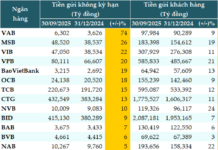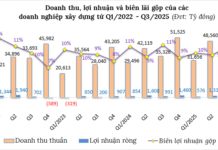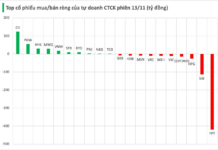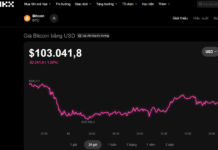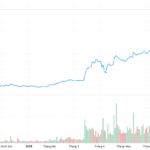Entrance Examination for Doctoral Training Programs
During the morning session of August 13, the National Assembly Standing Committee discussed the draft Law on Higher Education (amended) with a focus on training program regulations to optimize resources, technical infrastructure, and digital infrastructure.
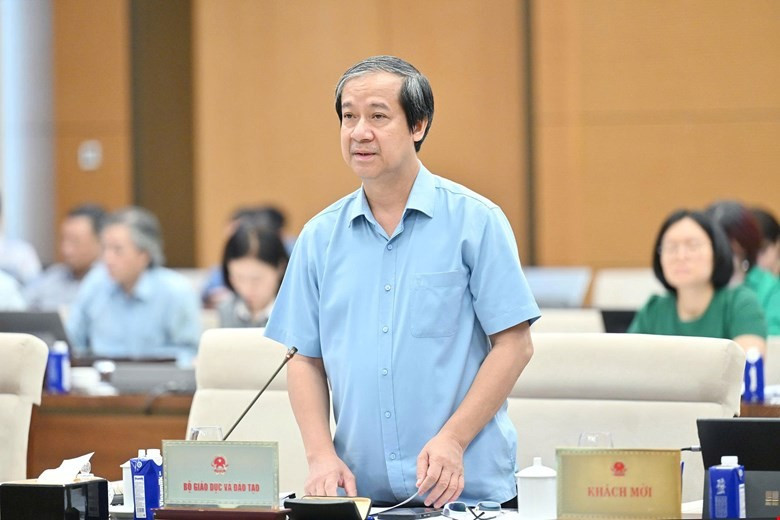
Minister of Education and Training, Nguyen Kim Son
The draft law aims to improve talent development policies and enhance high-quality training to provide a skilled workforce that meets the demands of globalization in higher education and the labor market. This includes the need for professionals in science, technology, innovation, and digital transformation, as well as adapting to the impacts of artificial intelligence (AI) and digital transformation on industry structures.
Notably, the draft law clearly defines the entrance examination requirement for doctoral training programs and specific sectors such as teacher training, healthcare, and law. It states that the minimum quality standards for entrance into teacher training and healthcare and law sectors shall be determined by the Ministry of Education and Training.
Minister Son also emphasized the importance of quality assurance through accreditation for higher education institutions and training programs, especially for unique sectors. Accreditation will be voluntary and linked to the level of autonomy, addressing the issues of formalistic accreditation and overemphasis on accreditation results that do not truly reflect the actual quality.
Stricter Standards for Medical and Pharmaceutical Training
Vice-Chairman of the National Assembly, Nguyen Khac Dinh, agreed with this approach, emphasizing the necessity of stringent and thorough evaluation for education, law, and healthcare. He asserted that teacher training is a critical sector as it is the “master machine” of the education system, producing teachers who will shape future generations.
Similarly, in the legal sector, Vice-Chairman Dinh noted the rapid increase in the number of law training institutions over the years. According to statistics from 2-3 years ago, there were already over 100 such facilities in the country. Many multidisciplinary institutions now offer law programs, and some only train a few dozen students annually without dedicated faculty or curricula, impacting the quality of legal education. He suggested reorganizing and enhancing the quality of legal training.
Regarding the healthcare sector, especially medical and pharmaceutical training, including traditional medicine, the Vice-Chairman expressed concern about the large number of training institutions. He questioned whether there were sufficient qualified instructors and well-structured curricula. Therefore, he emphasized the imperative of mandatory quality assurance, suggesting that institutions failing to meet the standards should have their licenses revoked.
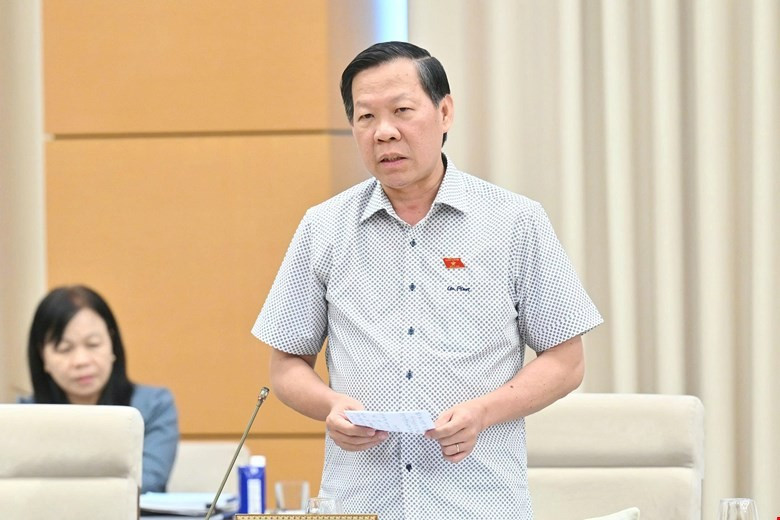
Chairman of the Committee for Economic and Financial Affairs, Phan Van Mai.
Sharing similar concerns, Mr. Phan Van Mai, Chairman of the Committee for Economic and Financial Affairs, stated that teacher training should selectively recruit talented and dedicated individuals and provide them with comprehensive training. He emphasized that “teachers’ salaries should be twice or thrice the average, which is not unreasonable.” Mr. Mai also suggested tightening training standards in the medical and pharmaceutical sectors to ensure they meet the healthcare needs of the people.
The draft Law proposes adding provisions on higher education foundation standards, training policies, and policies on the application of advanced technology and digital higher education to keep up with the trend of digital transformation and educational innovation. These standards aim to facilitate the shift from pre-inspection to post-inspection management, enhance the autonomy of higher education institutions along with accountability, and provide a legal framework to promote the implementation of digital higher education, improve training quality, and expand flexible and lifelong learning opportunities for students.
“Strengthening Financial Resilience: SHB’s 13% Stock Dividend Paves the Way for International Safety Standards”
“With a recent 13% stock dividend, SHB has solidified its position within the top five privately-owned commercial banks in terms of charter capital. By distributing stock dividends, SHB, alongside other banks, can bolster their equity, enhance their capital adequacy ratio (CAR) to meet international standards, comply with new regulations, and ultimately strengthen their lending capacity.”
“SHB Shareholders Rejoice: Market Cap Hits $3 Billion Milestone, 13% Dividend Payout on August 19”
“SHB shareholders are on a roll with consecutive dividend payouts! Following a generous 5% cash dividend in June, the company has announced an additional 13% stock dividend. This positive news comes on the back of a promising upward trajectory for the company’s stock performance, much to the delight of its investors.”







